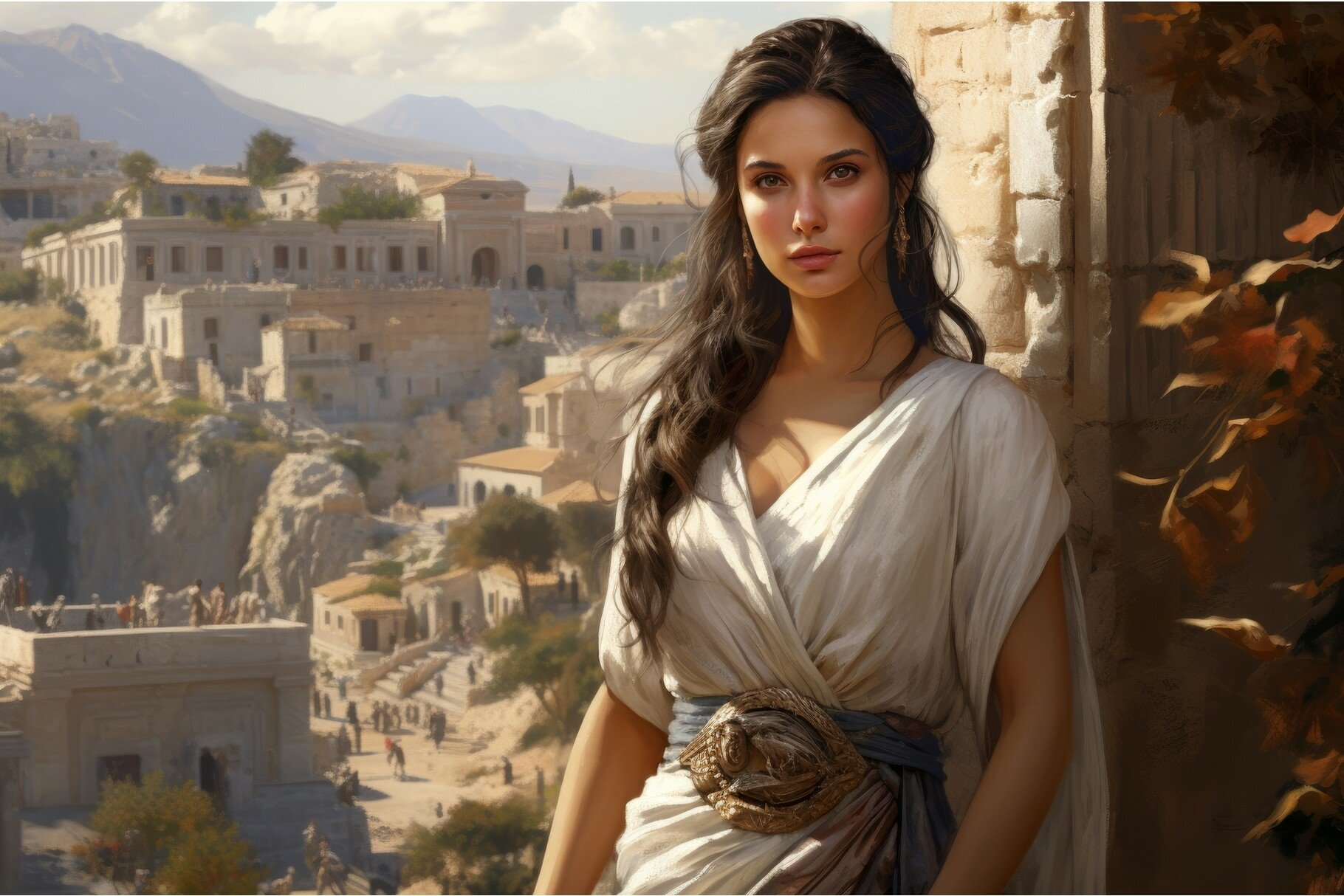Ancient Greece is widely recognized for its monumental achievements in philosophy, politics, and the arts. Yet, the stories of its women often remain untold or obscured by male-dominated narratives. This blog dives into the legendary, historical, and everyday lives of ancient Greek women, exploring their roles and enduring legacies.
Mythical Archetypes: Goddesses and Heroines
Greek mythology provides a vivid tapestry of female figures who embody wisdom, strength, and complexity. These stories, though fictional, illuminate societal ideals and the multifaceted roles women were imagined to play.
Athena: Embodiment of Wisdom and War
Athena, one of the most revered Olympian goddesses, symbolizes intelligence and strategic warfare. As the patron deity of Athens, her influence extended far beyond myth, shaping cultural and civic identity. Her support for heroes like Odysseus in The Odyssey showcases the ancient value of cleverness over brute force.
Penelope: A Model of Endurance
Homer’s The Odyssey portrays Penelope as a paragon of loyalty and ingenuity. For two decades, she skillfully manages her household and outwits persistent suitors while awaiting Odysseus’ return. Her actions reflect the strength and resourcefulness attributed to women within the domestic sphere.
Medea: A Figure of Power and Controversy
Medea, a sorceress and protagonist in Euripides’ tragedy, defies traditional gender roles with her intelligence and magical abilities. Her dramatic tale explores themes of betrayal, vengeance, and the societal constraints on women, making her one of mythology’s most debated figures.
Historical Women: Pioneers and Influencers
Though often overshadowed by men, certain women in ancient Greece made remarkable contributions to their societies and beyond.
Aspasia of Miletus
Aspasia, a philosopher and partner of Pericles, was a trailblazer in Athenian intellectual life. Renowned for her eloquence and sharp mind, she influenced political discussions during Athens’ Golden Age, hosting gatherings that attracted luminaries like Socrates.
Gorgo of Sparta
Queen Gorgo, the wife of King Leonidas, exemplified the boldness and political insight of Spartan women. She is remembered for her decisive advice during the Persian Wars and for embodying the Spartan ethos of courage and sacrifice.
Artemisia I of Caria
A naval commander during the Greco-Persian Wars, Artemisia demonstrated exceptional strategic skill at the Battle of Salamis. Her achievements, rare for a woman in a military context, earned her respect from allies and enemies alike, proving that leadership transcended gender in extraordinary circumstances.
Contributions to Culture: Art, Poetry, and Religion
Sappho: Poet of Passion and Reflection
Sappho of Lesbos remains one of antiquity’s most celebrated lyric poets. Her verses, though fragmented, delve into themes of love, identity, and human emotion, offering a window into the personal and social lives of women in her era.
The Pythia: Voice of the Gods
The Pythia, the priestess of Apollo at Delphi, wielded immense spiritual influence. Her role as an oracle, offering guidance to leaders and citizens alike, underscores the unique power women could hold in religious settings.
Women as Artisans and Patrons
Women’s contributions to the arts, though often overlooked, were integral to Greek culture. From weaving intricate textiles to supporting religious and civic projects as patrons, women’s creative and economic influence was substantial.
Everyday Lives: A Spectrum of Experiences
The daily lives of ancient Greek women varied significantly depending on their city-state and social class.
Athenian Women: Primarily confined to domestic roles, they managed households and participated in religious festivals but had limited public visibility and autonomy.
Spartan Women: Enjoyed greater freedoms, engaging in physical training, owning property, and influencing their society’s military-focused culture.
Women in Other Regions: Across Greece, roles ranged from merchants to priestesses, illustrating a broader spectrum of opportunities than often assumed.
Women’s Multifaceted Legacy
From mythical heroines like Athena and Medea to historical figures like Aspasia and Artemisia, the women of ancient Greece left an indelible mark on history and culture. While the daily lives of most women were shaped by societal constraints, their contributions—whether through art, religion, or intellect—enrich our understanding of this ancient world.
Reexamining these narratives bridges the gap between myth and reality, celebrating the complexity and resilience of ancient Greek women whose legacies continue to inspire.







